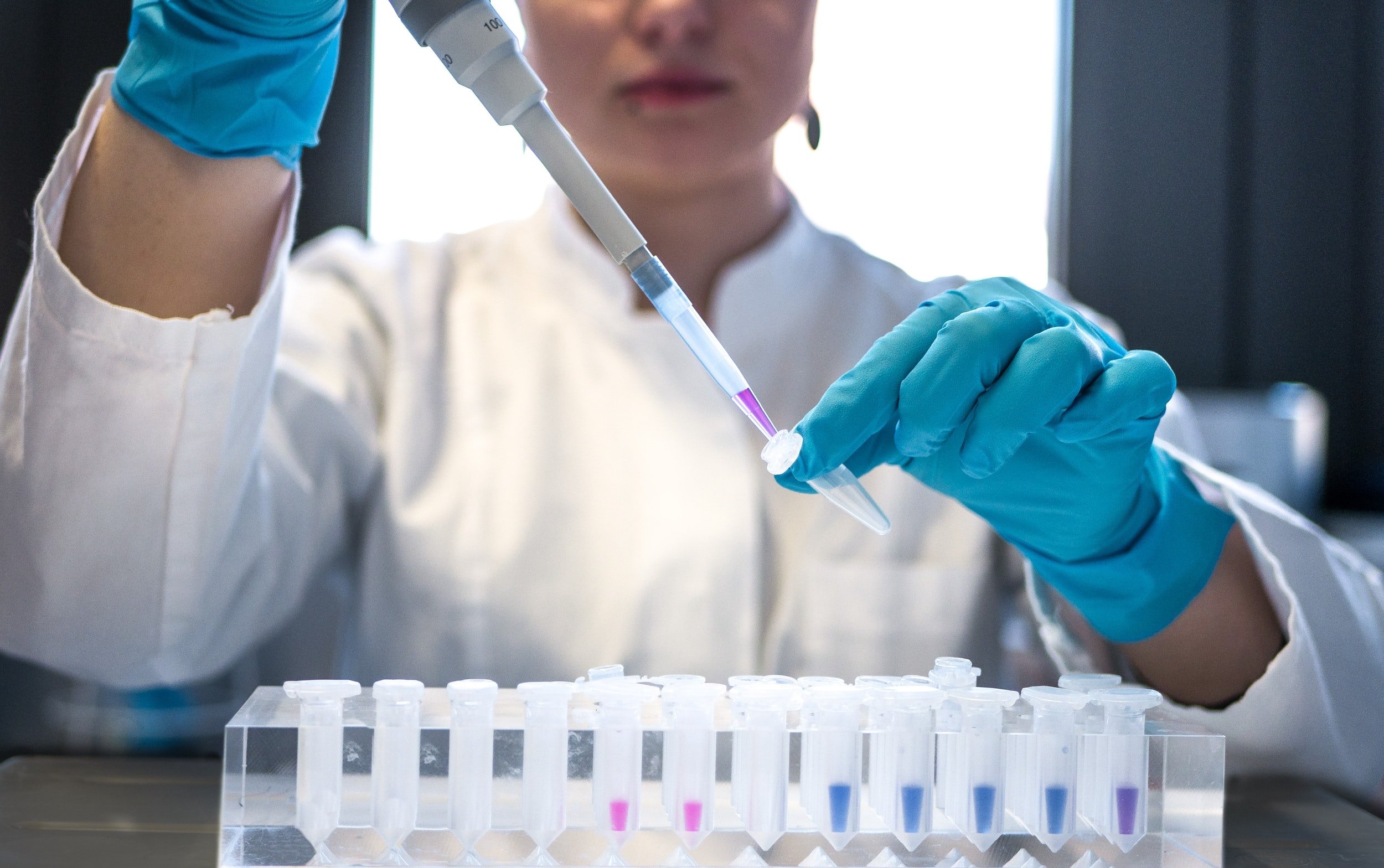
Research Projects and Teams
The Christina Lee Brown Envirome Institute houses over a dozen scientific laboratories on the University of Louisville’s Health Sciences Campus. Our research teams are dedicated to understanding how our natural, social, and personal environments lead to good health or increased disease risk.

Environmental Medicine
Environmental medicine is a multidisciplinary field involving environmental science, medicine, chemistry, toxicology, epidemiology, sociology, and other disciplines. It is a specialized form of environmental health, a branch of public health, which advances health and well-being by identifying and limiting exposure to hazardous agents in the environment. Environmental medicine scientists study how these environmental exposures are related to the causes and effects of disease and test interventions that can prevent and mitigate disease formation and progression.
Publications
Envirome faculty members are constantly publishing articles in scientific journals about their work. Visit the Division of Environmental Medicine webpage to see a list of our researcher’s recent publications.
Projects
Green Heart Louisville Project
The Green Heart Louisville Project is a first-of-its-kind scientific experiment that will test if increasing green space in a neighborhood will improve air quality and human health.
With a multimillion-dollar investment in several South Louisville neighborhoods, the Green Heart Project seeks to demonstrate the scientific link between nature and human health. By tackling two critical problems – air pollution and chronic disease – with a new, nature-based approach, Green Heart hopes to create a platform for major change. The project is a clinical trial where trees are the medicine.
Trager MicroForest Project
The Trager MicroForest at Founders Square is exploring how intensely-planted urban spaces can promote a healthier and more vibrant city.
Located at 501 W. Muhammad Ali Boulevard, in downtown Louisville the project offers a platform for scientific inquiry into the ability of novel planting and designs to measurably improve multiple aspects of human and environmental health. As part of the UofL Christina Lee Brown Envirome Institute’s New Vision of Health Campus, the Trager MicroForest is helping us to better understand the potential of nature in cities..
Greenprint Project
The Greenprint Project is a community-led initiative to transform downtown Louisville into a healthier, greener, and more resilient urban core. With an evidenced-based approach coordinated by the University of Louisville’s Christina Lee Brown Envirome Institute and the Urban Design Studio, the project unites a diverse coalition of government agencies, nonprofits, community groups, developers, and design professionals around a shared commitment to improving human well-being through nature-based urban design..
Co-Immunity Project
The Co-Immunity Project was a large scientific research study led by the Christina Lee Brown Envirome Institute, the Center for Predictive Medicine, and the University of Louisville with several partners teaming up for the individual phases. Using our combined forces, we studied COVID-19 infection and immunity among healthcare workers and our broader Louisville Metro-Jefferson County community and tracked the movement of the SARS-CoV-2 virus in Louisville’s wastewater and surface water.
Laboratories and Cores
Human Studies Unit: investigates how human environmental exposure affects factors associated with blood vessels and impacts heart disease and diabetes.
Carll Lab: investigates how environmental stressors affect cardiac function and regulation, and identifies factors that alter susceptibility to these stressors, to guide risk estimates and regulatory policies.
Conklin Lab: investigates how environmental and tobacco product-derived pollutants alter cardiovascular health and disease risk
Hellmann Lab: investigates how cellular mechanisms regulate inflammatory responses in order to understand and better manage chronic inflammatory diseases.
Haberzettl Lab: investigates how exposure to air pollution induces vascular and cardiometabolic injury in healthy and susceptible individuals.
Hill Lab: investigates the metabolic underpinnings of cardiovascular health and disease.
Bioanalytics Core: provides investigators with technical expertise, education, mass-spectrometry based analytical services, and develops new analytical approaches.
Flow Cytometry Core: offers Center Investigators the ability to utilize complex and technically-challenging flow cytometric approaches to characterize cells and their functional and signaling properties.
Animal Models and Phenotyping Core: provides members of the Diabetes and Obesity Center with the expertise, resources and the facilities needed for animal husbandry and necropsy services and to maintain and phenotype murine models of diabetes and obesity.
Imaging and Physiology Core: provides investigators with access to state-of-the-art instrumentation and expert instruction related to confocal imaging, assessment of cardiac function, and performance of surgery in mice.
The Latest Envirome News
